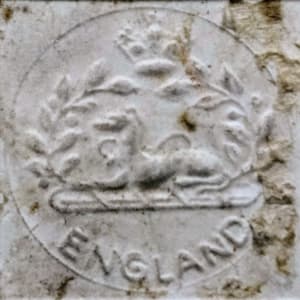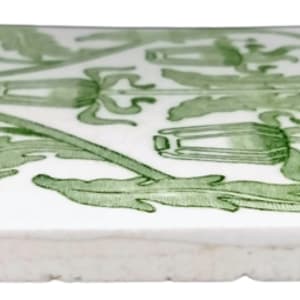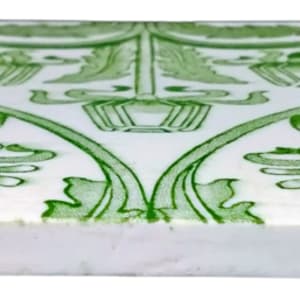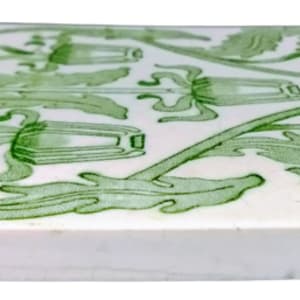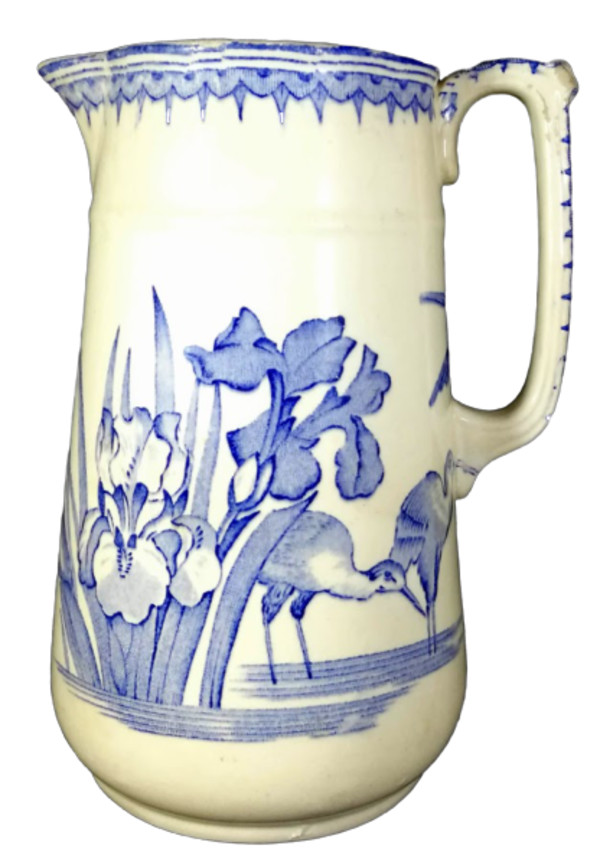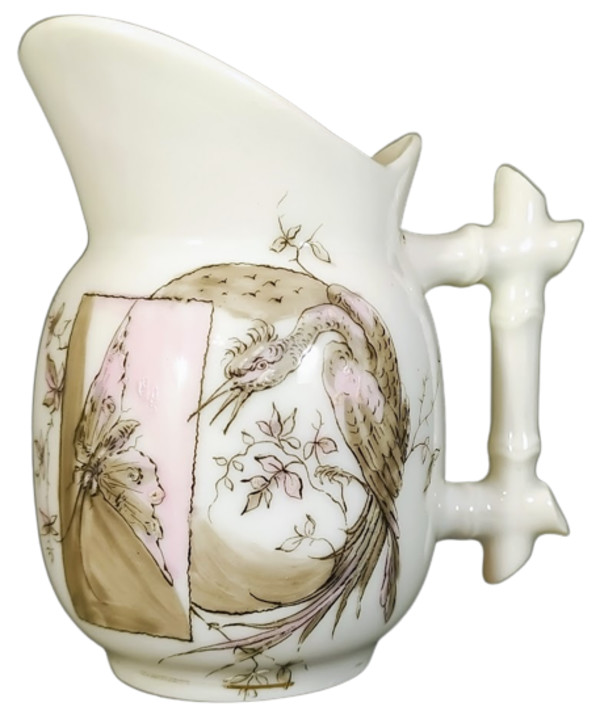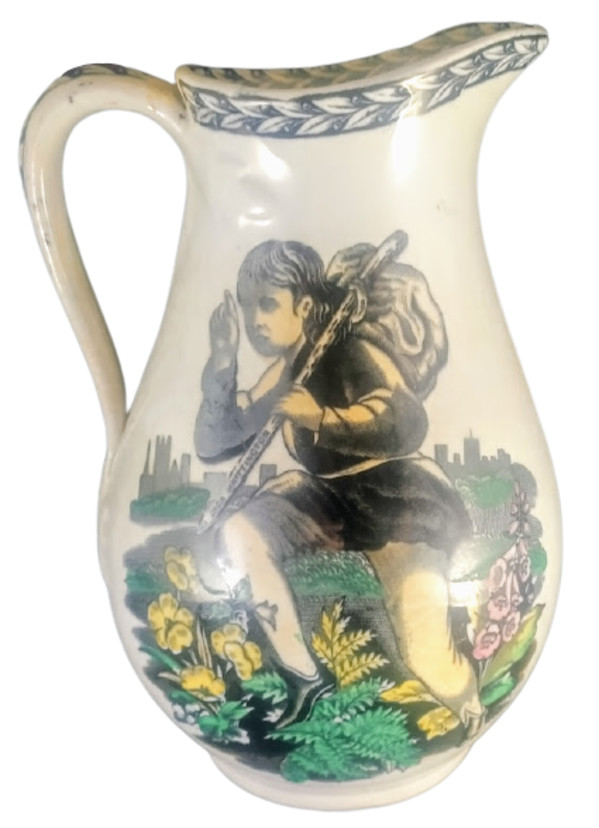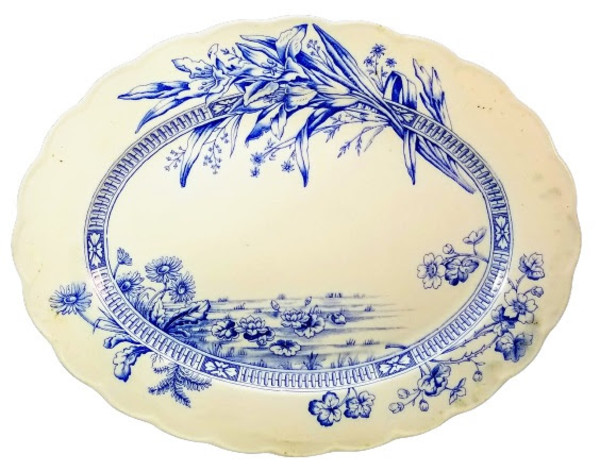- T. & R. Boote
- Unnamed (Dandelion), c. 1891-1906
- Earthenware
- 6 x 6 in (15.24 x 15.24 cm)
-
Not For Sale
Tile, 6 x 6 inches. Green transfer. Raised maker's mark for T. & R. Boote. The inclusion of 'England' dates this tile to c. 1891-1906. The style of this pattern is Art Nouveau and features a sinuous, curving dandelion plant with buds, blooms, and leaves stretching from bottom to top.
T. & R. Boote was an earthenware, parian, and tile manufacturer, originally at the Central Pottery in Burslem, Staffordshire, England. The original business was founded in 1842 by Thomas Latham Boote and Richard Boote, who rented the three-bottle oven Central Pottery in Burslem. Later the business moved to the Kilncroft Works and then around 1850 took over the Waterloo Pottery from Thomas Edwards. By 1850 the company had begun producing tiles. At some time Edward Barker and John Mare Harrison were partners in the business; they left the partnership in 1861. In 1865 the company started to produce unglazed pavement tiles. They took out a patent for 'Process for inlaying encaustic tiles with clay dust.' Thomas Latham Boote retired in September 1879 and the business was continued by Richard Boote with the help of the sons. By 1888 the production of decorated wear had stopped and production concentrated on white ironstone for the American market. In 1891 Richard Boote died and in 1894 the business became a limited liability company. For a brief period T. & R. Boote concurrently manufactured at the Portland Tile Works on Newcastle Street, Burslem. In 1906 production concentrated on tile manufacture. At some time T. & R. Boote operated at the Hall Field Works in Hanley - in 1947 it was purchased by Richards Tiles - at that time it manufactured about three thousand square yards per week of unglazed floor tiles. In 1963 the business was taken over by Richards Tiles.
- Subject Matter: Aesthetic (Floral & Botanical)
- Collections: Aesthetic Tiles, Aesthetic Transferware, T. & R. Boote


